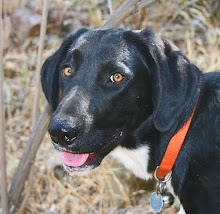The fate of the show-biz grizzly bear that killed a professional animal handler yesterday is undecided. The 5-year-old 700 lb bear unexpectedly lunged and killed the handler with a neck bite. Two other trainers used pepper spray to get it under control. OSHA and California Fish & Game are investigating, and animal advocates and private citizens are voicing opinions.
Captive animal managers, and I am talking about people like me who have worked in zoos, know that hand-reared birds and mammals can be dangerous, and far more so than those reared and socialized with members of their own species. The reason is that they are extremely tame, which means they are unafraid of people. People take chances with tame animals that they would never take with wild animals.
A few observations.
First, neck biting is a normal pattern of behavior among bears, and for that matter carnivores in general. It may draw blood, but it is not usually fatal. The force of the bite depends on context, as most pet owners know. Play bites are restrained, threat bites hurt, and serious bites cause injury or death. (I should also add that bears have thick hides. The neck skin in particular evolved into a dermal shield to protect vital organs against jaws.)
Second, a fine line separates play fighting and fighting. Rough-and-tumble play among siblings often turns into a fight. We've seen it in dogs, cats, and our own children. It's the same with bears.
So wrestling with tame bears has inherent risks. The only thing protecting a man is his ability to read its moods, and the bear's self restraint. There's a terrific imbalance in size, strength, speed, and reflexes.
But oh, how we love our cockeyed fantasies. Then someone gets hurt or killed. We don't buy into that fate and Kismet stuff, however. We want to fix the problem, and there is no shortage of expert solutions, from revenge to legislation.
The interesting thing to me is that in more fatalistic societies, homicidal animals like the occasional domestic elephant are not condemned to death. As my old Indian friend Doc Krishnamurthy used to say, "Human life is our cheapest commodity".
When an elephant kills its mahout in Sri Lanka and India, new mahouts clamor to take over. I co-advised a masters student who studied the macho phenomenon among Sri Lankan mahouts, and she found that 34% of mahouts said they would prefer a killer elephant to a non-killer. Why? Because they would gain status among their peers, and because the elephants' owners would be less likely to interefere with their work.
Whether spectators or performers, naked apes are the same everywhere. As long as there are bears, snakes and elephants, there will be bear trainers, snake handlers, and mahouts who think they can defy a unique fate.
And you know what? Most of the time they do.
Reference
Godagama, W.K. 1996. An ethno-zoological study of domesticated elephants in Sri Lanka. Masters Thesis, University of Colombo, Sri Lanka.

5 comments:
I rather appreciate the attitude of Roy Horn (of Siegfried & Roy) when he was mauled by one of his tigers...and insisted the cat not be harmed.
It is my feeling that, as you pointed out, it is all to easy to forget that the animals are not domestic, even if they were never wild... and that if one chooses to work with them, they should remember that and if problems come up (including the death of the trainer) the animal should be 'retired'. Somehow. [sigh]
Just my $0.02
Dang...I forgot to tell you your link doesn't work. It goes to the paper, but "Page Not Found".
Thanks, Beverly. Fixed it.
Brilliant commentary/analysis.
Thanks,
Ojb.
Good post, Chris.
It is interesting that animal trainers never want "offending" animals to be put down-- only the fearful/ sentimental public and regulators. The mahouts know better.
Post a Comment